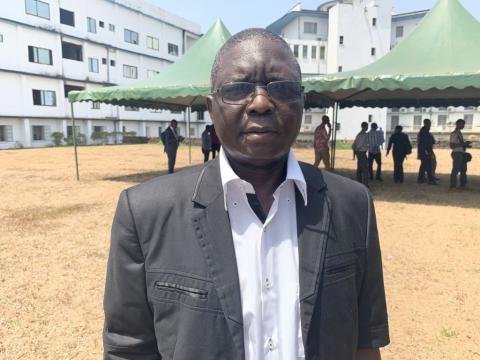By Kemo Cham
The National Coronavirus (Covid-19) Response Team has introduced a new policy in the management of its pass system to ensure that the right people are allowed to move about during lockdowns and other restrictions.
Effective last week, the passes will now be applied for and issued electronically, the Emergency Operation Center (EOC) said in a statement, noting that the move is meant to improve on the management and efficiency of the system.
The pass system was introduced to facilitate the movement of people and essential goods and services in light of restrictions introduced in the response efforts of the viral pandemic. They were first introduced early April, during the three days nationwide lockdown. The process of issuance of the passes came under severe criticism, with civil society organizations and other observers claiming that it was fraught with irregularities.
Several organizations noted in their reports on the outcome of the lockdown that passes were issued to many people who didn’t deserve them.
The EOC said the new policy, which involves an Electronic Pass Management System (e-Pass), while reducing human interaction, would improve on the efficiency and transparency of the process.
The statement dated April 25, signed by the Government Covid-19 spokesman, Solomon Jamiru, outlines a list of criteria on the basis of which applications for the passes will be considered.
A dedicated website: epass.eoc.gov.sl, has been created where applicants must complete online forms and submit them.
Alternatively, applicants can call through a dedicated telephone line and put in their applications if they do not have immediate access to computer to make the online application.
“For extraordinary circumstances where an organisation does not fall within the approved eligible categories, a request for special consideration should be addressed to the National Coordinator,” it says.
The shift in policy comes amidst speculations about the imminent announcement of another lockdown, in response to the spiraling cases of the viral disease.
As of Monday April 27, Sierra Leone had recorded 99 cumulative confirmed cases, with four deaths.
There had been calls for the government to declare an extended lockdown – at least 14 days - after the first one that lasted from April 5 to 7 appeared to have yielded unsatisfactory results.
While the government said that lockdown was successful, observers, notably the Sierra Leone Medical and Dental Association (SLMDA), said it fell short of attaining its goals, citing the large number of cases that continue to come up daily.
The government has however always expressed concern about the economic and social implication of an extended lockdown on the majority poor masses who live from hand-to-mouth.
But with evidence of increasing community transmission of the virus, it is becoming increasing likely for a lockdown to be declared.
There is already an existing inter-district lockdown and a nationwide curfew that runs between 9pm and 7am daily. For this to be effective, proper coordination is required for the free movement of essential goods and services, which are exempted by the current restriction.
According to the EOC’s pass categorization, transporters of essential goods like food items, drinking water, fuel, drugs and medical supplies, as well as construction materials, wouldn’t be required to apply for the pass.
Only essential service providers like electricity, telecommunications, healthcare, water supply, Government infrastructure contractors as well as uniformed state and private security personnel and currency transport vehicles, would be required to possess passes. Government and private business personnel on essential duties, International NGOs and relief service providers, are also expected to have passes.
While initially these people requested for it and were issued in person, under this new policy applications will be received and vetted remotely and the passes issued.
Skeptics wonder if the EOC has the expertise to ensure that the right people get the approval, especially when they are not going to be physically present to defend their request.
Among many others, an even more compelling concern has recently emerged.
Many of the confirmed Covid-19 cases recorded outside Freetown after the imposition of the inter-district lockdown reportedly originated from the capital city. Those who question the efficacy of the electronic pass system wonder how the authorities can ascertain the health status of applicants before issuing them pass.
Copyright © 2020 Politico Online








